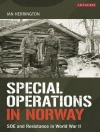This special issue provides a forum for discussion of what Belarusian Studies are today and which new approaches and questions are needed to revitalize the field in the regional and international academic arena. The major aim of the issue is to go beyond the narratives of dictatorship and authoritarianism as well as that of a never-ending story of failed Belarusian nationalism—interpretive schemes that are frequently used for understanding Belarus in scholarly literature in Western Europe and Northern America. Bringing together ongoing research based on original empirical material from Belarusian history, politics, and society, this issue combines a discussion of the concept of autonomy/agency with its applicability to trace how individual and collective actors who define themselves as Belarusian—or otherwise— have manifested their agendas in various practices in spite of and in reaction to state pressure.
This issue offers new approaches for interpreting Belarusian society as a dynamically changing set of agencies. In doing so, it attempts to overcome a tradition of locating present Belarusian political and social dilemmas in its socialist past.
Про автора
Andreas Umland, M.Phil. (Oxford), Dr.Phil. (FU Berlin), Ph.D. (Cambridge), Research Fellow at the Swedish Institute of International Affairs in Stockholm, Senior Expert at the Ukrainian Institute for the Future in Kyiv, and Associate Professor at the National University of Kyiv-Mohyla Academy.












